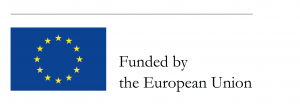16 Days of Activism Against Gender-Based Violence: Feminist Leadership shifts the power towards women
Gender-Based Violence (GBV) is still a very prominent issue in our society and within our communities that continues to primarily impact the lives of women and girls.
Trigger Warning: Mention of gender-based violence and sexual assault.
During the 16 Days of Activism Against Gender-Based Violence that led up to Human Rights Day, we were reminded that living a life free of violence and coercion is a human right that must be accessible to all. Yet, women’s rights and access to Water, Hygiene and Sanitation WASH (Water Sanitation and Hygiene) and their Sexual Reproductive, Health and Rights (SRHR) are continuously impacted by gender-based violence.
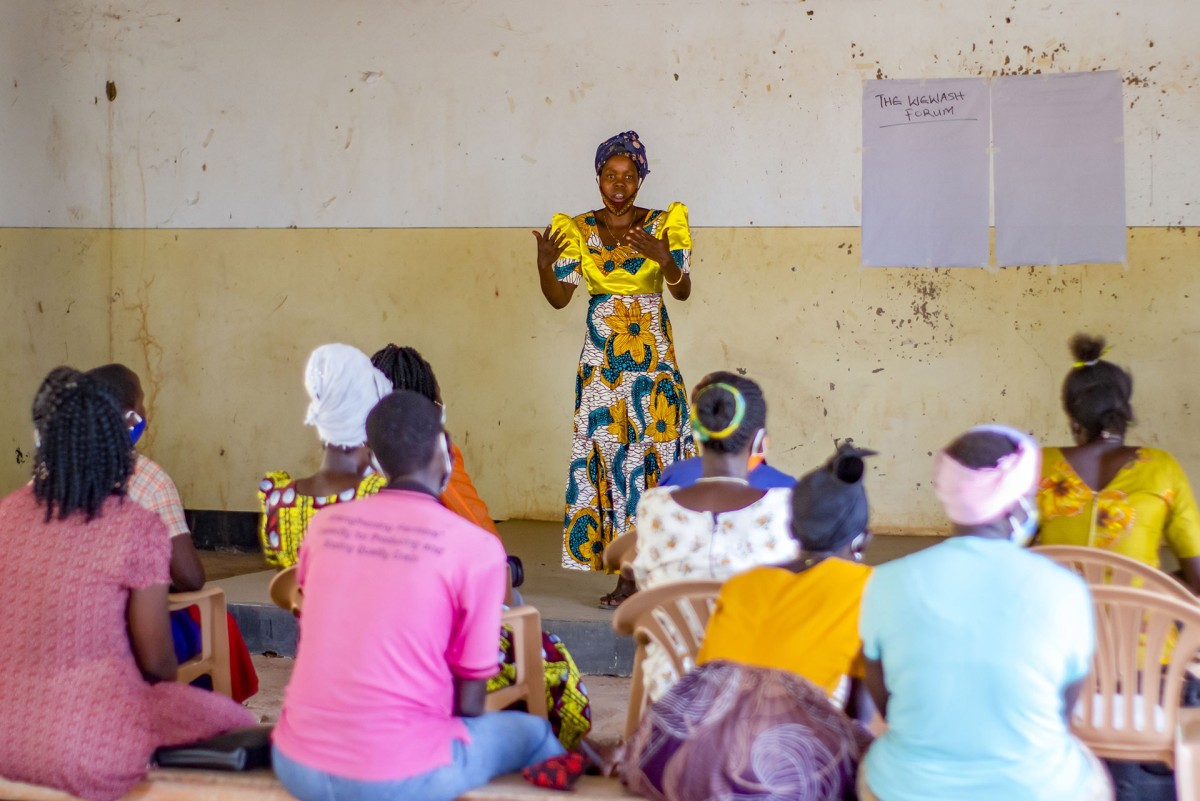
Women and girls represent the needs of women and girls
Gender-based violence is a cause as well as an effect of gender inequality. This cycle of violence and coercion against women and girls continues to disproportionately impact women and girls’ bodily and financial autonomy, whilst the lack of sensitisation and action against GBV continues to put women and girls at risk.
Who better to holistically represent the needs of women and girls than women and girls? That’s why our programmes put women and girls at the centre of activism against gender-based violence by raising awareness and advocating for change.
Women in WASH against GBV
The WEWASH (Women in WASH) Network Forum is a new initiative part of the WASH SDG programme that aims to create a safe space for women entrepreneurs to network, share experiences and learn from one another. Through this informal and interactive platform, the over 230 female entrepreneurs in the Agago district in Uganda get the opportunity to grow their businesses through experiential mentorships.
The needs of female entrepreneurs are often neglected and the WEWASH forum aims to represent women’s needs on all levels, in the town council, within the communities, and in the government. Furthermore, the forum supports women in raising awareness and advocating for their WASH needs, their SRHR and their menstrual health, among others. While facilitating trainings and mentorship sessions that support women in developing their entrepreneurial management skills.
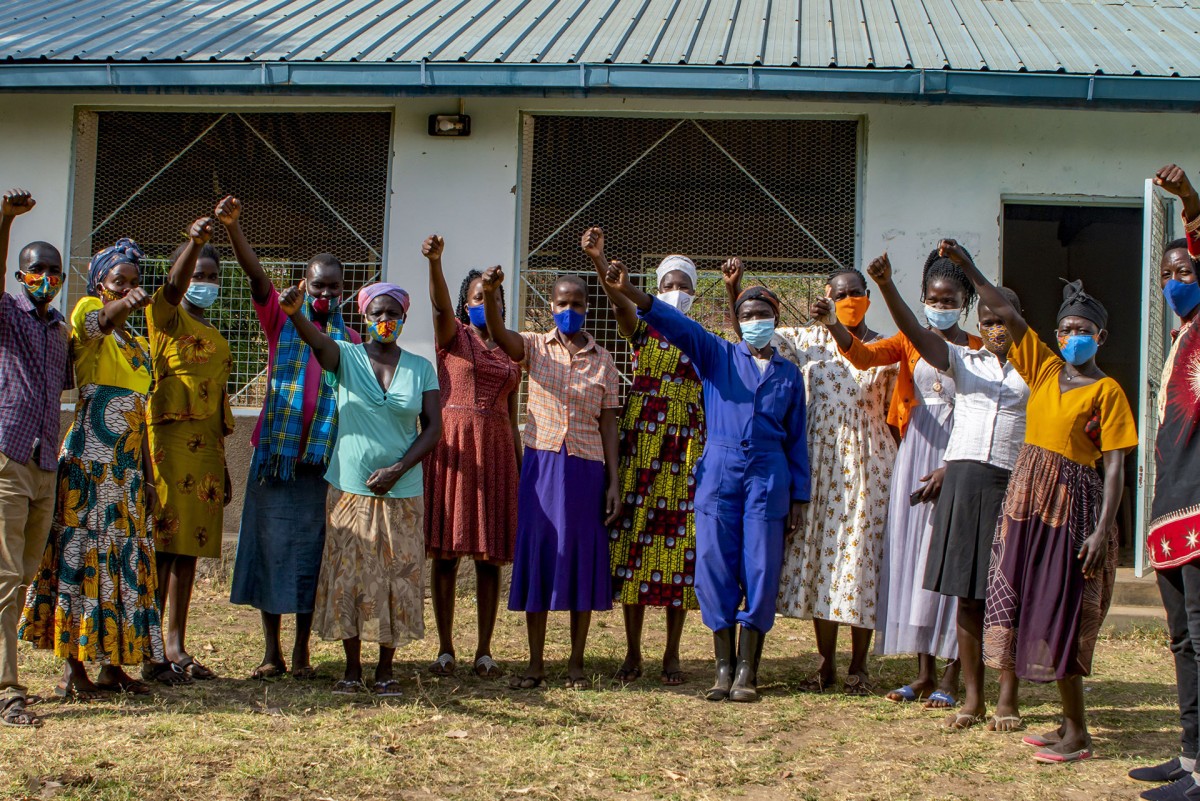
Involving young people in the conversation
Gender-based violence is among the key focus areas of the WEWASH Network Forum. Which is why the forum was commemorating the 16 Days of Activism Against Gender-Based Violence with a series of activities aimed at engaging women in the conversation about GBV, supporting communities in understanding the (financial) impact of GBV for female entrepreneurs, and by creating an environment for (un)learning about GBV.
Their approach during this campaign, as with all their activities, was to put women at the centre. One of the main objectives of this campaign has been to sensitise communities and governments about the impact of gender-based violence. The forum wants to raise awareness on the impact of GBV on teenage pregnancy in the Agago district by involving young people in the conversation.
’They are basically gathering the youth and doing more sensitization and creating a sense of awareness. During these gatherings they have a look at the link between GBV and teenage pregnancy and try to come up with possible solutions that also involve the community in eradicating this issue’
Impact of Covid-19 on gender-based violence
Furthermore, the WEWASH Network Forum is also working on raising awareness about the impact of Covid-19 on GBV. Which has, unfortunately, increased alongside teenage pregnancy because students are forced to stay home and can’t go to school. Throughout these 16 days, the forum has travelled to various districts and has appeared on radio talks shows to spread this important message and invite communities to be part of the solution.
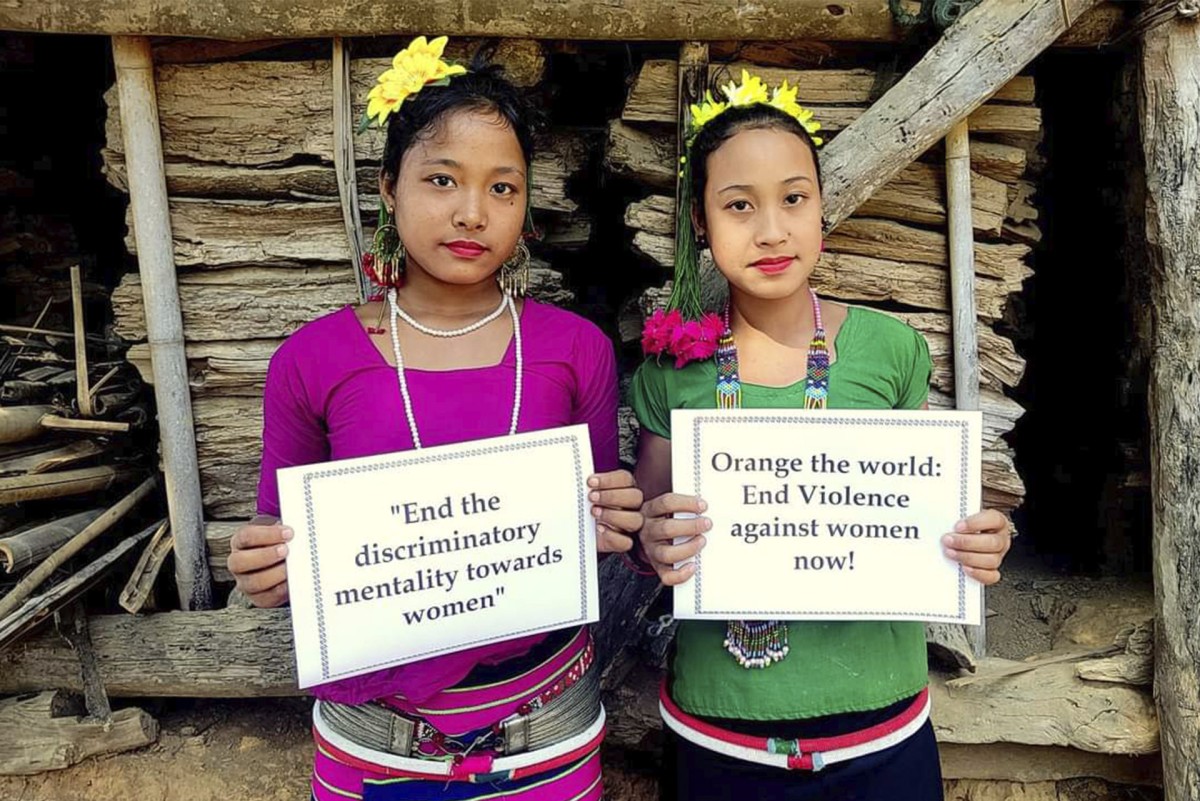
Nothing about us, without us
The Our Lives, Our Health, Our Futures (Our LHF) programme in Bangladesh actively works against gender-based violence during these 16 days of activism and the remaining 349 days in the year since 2019. The programme, funded by the European Union, aims to enable, and support young women and adolescent girls from indigenous groups to transition into adult womanhood with dignity, and bodily and sexual autonomy, without violence, coercion and/or discrimination.
Our LHF programme has an intersectional approach in tackling gender-based violence in connection to SRHR by targeting 12 hundred young women and girls between the ages of 10 to 25 and providing SRHR education, training and mentorship. During special dates like this, the programme aims to disseminate messages and engage community and political leaders and stakeholders to support girl’s SRHR. Our LHF involves parents, family and (community) leaders in discussions towards enabling a life free of violence for women and girls.
Dismantling systems that don’t work well in favour of women and girls
Baseline data form the Our LHF programme in Bangladesh, shows that there is an increase of GBV in indigenous communities. Noticeably, sexual harassment and assault in the regions seems to have increased in recent time. Which is reportedly a result of the increase of digital communication channels and the expansion of settlers in indigenous communities – among others. Moreover, domestic GBV has significantly increased since the outbreak of Covid-19.
‘In indigenous communities we’ve noticed a cycle of men becoming unemployed, staying home and being home more often, and dumping their frustrations on the women.'
Domestic violence is often normalised and considered taboo
A training report from 2019, shows that domestic violence is often not recognized and is acceptable in many rural areas. Thus, domestic violence is often normalised and considered taboo, which discourages women from coming forward. A system that doesn’t work well in favour of women. And unfortunately, the police are for many indigenous women not accessible due to far away locality, language barriers and the complex systems in place - the same barriers apply in various institutions like health clinics. Because of all these barriers, women’s needs are often neglected and go unheard. The Our LHF programme aims to remove these systems and patriarchal norms by sensitizing political and community leaders and relevant stakeholders.
Advocating for more accountability
During the 16 Days of Activism Against Gender-Based Violence, Our LHF programme organised meetings with government agencies, including law enforcement agencies, to advocate for greater commitment from the police to arrest perpetrators of GBV and hold them accountable. Particularly for sexual assault and rape.
Furthermore, CSOs (Civil Society Organisations) associated with the programme organised different activities and events with women and girls to call attention to GBV in the Chittagong Hill Tracts (CHT) and demand action. They organised free distribution of menstrual products to girls by the government, human chains in protest, football matches among girls to raise awareness, displayed messages against GBV, and organised a rally and cultural performance.
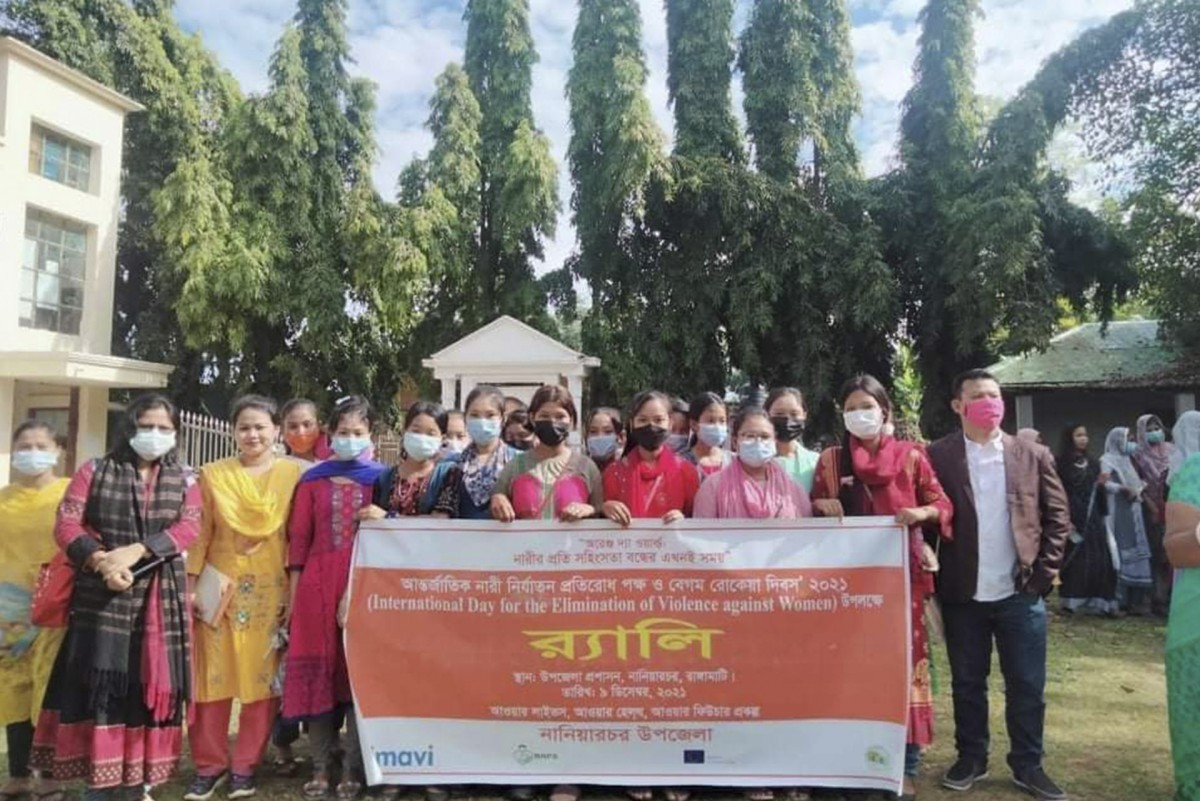
Gender equality: an approach that includes women in their diversity
Even though the 16 Days of Activism Against Gender-Based Violence campaign has ended. Gender-Based violence hasn't. It remains to impact all areas of women’s lives - their domestic lives, their work and businesses, their access to education, their access to WASH and SRHR, and also the Covid-19 pandemic adds to this.
That's why in our programmes we continue to raise awareness and advocate for change. Because gender-equality must include feminist leadership that represents women and girls on all levels and, moreover, that includes all women. In the same way the young women of Agago district were at the centre of the conversation surrounding the impact of gender -based violence on teenage pregnancy or how the twelve thousand indigenous young women and girls are involved in the conversation about their bodily autonomy.
